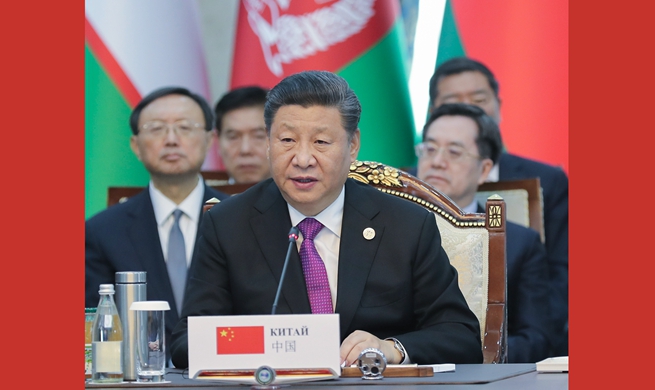GABORONE, June 14 (Xinhua) -- Non-communicable diseases threaten the health of the people in Botswana as well as the southern African country's national development agenda.
Botswana's President Mokgweetsi Masisi made the remarks on Friday when launching the Botswana multi-sectoral strategic plan for the prevention and control of non-communicable diseases and the national strategic framework for HIV.
The two strategic documents, which marked a critical point in the development of the diamond rich southern African nation and expected to impact significantly on the health and overall well-being of Botswana, were launched in Gaborone, Botswana's capital city.
For decades, Masisi said Botswana has focused its attention on addressing HIV/AIDS, which became the "biggest public health challenge of our lifetime."
According to Masisi, HIV/AIDS challenged and stretched Botswana in every possible way and taught them some valuable lessons which will aid the country in tackling non-communicable diseases.
"With regard to mortality, non-communicable diseases are estimated to have accounted for 46 percent of all deaths in Botswana in 2016," said Masisi.
Among these deaths, Masisi further explained that 18 percent were due to cardiovascular diseases, 7 percent due to cancer and 4 percent due to chronic respiratory diseases, while 6 percent were due to diabetes.
In this regard, Masisi added that non-communicable diseases have to be prioritized in the southern African country's national development agenda.
According to the non-communicable diseases' risk factors survey of 2014, some 30.6 percent of Botswana citizens are overweight, and 20 percent do not engage in physical activity.













